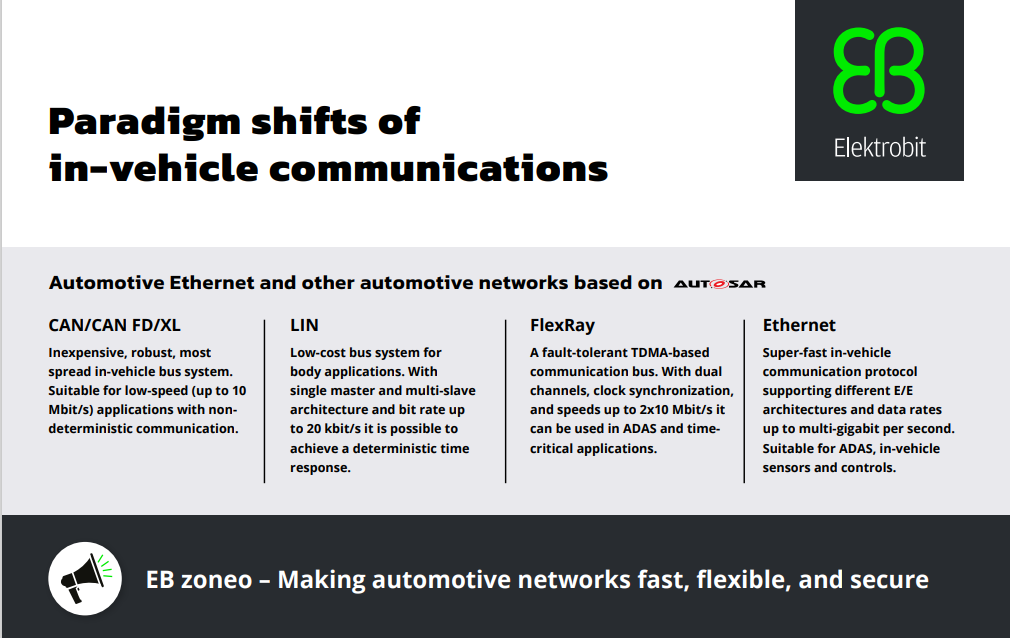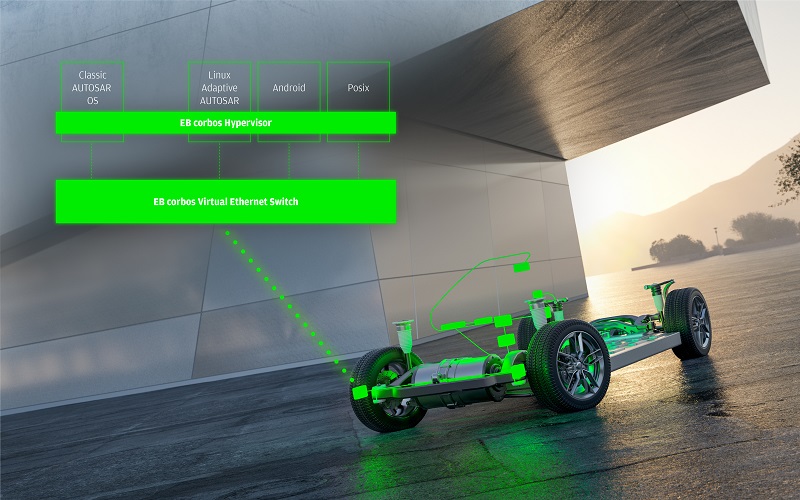Transport Layer Security (TLS) is a cryptographic protocol that ensures the privacy and integrity of data transmitted between systems. It is utilized in automotive networks to secure communications among components, systems, and external services. Serving as the successor to the SSL (Secure Sockets Layer) protocol, TLS offers enhanced security and performance capabilities. Given its pivotal role in securing communications, TLS is indispensable for safeguarding privacy and defending against cyber threats.
Secure in-vehicle networks
TLS encrypts data-in-transit and protects against eavesdropping and unauthorized access of sensitive information, contributing to overall data security.
Reliable communication
TLS employs authentication mechanisms to verify the identity of the communicating parties. This ensures that only trusted and authenticated entities can participate in secure communication, reducing the risk of unauthorized access and data tampering.
Data integrity
TLS verifies that the data has not been forged or tampered with and is crucial in securing remote diagnostics and software updates.
Key features of TLS
-
AUTOSAR-compliant security module: EB tresos implementation of TLS ensures secure communication via standardized, configurable modules aligned with AUTOSAR specifications.
-
Configurable via EB tresos Studio: TLS functionality is integrated and managed through EB tresos Studio, allowing developers to configure certificates, cipher suites, and connection parameters tailored to the specific ECU and communication needs.
-
The TLS implementation enables secure transport for protocols like DoIP (Diagnostics over IP), ensuring confidentiality, integrity, and authentication in vehicle diagnostics and over-the-air (OTA) communications.
Related content to Elektrobit’s security protocol solution






















